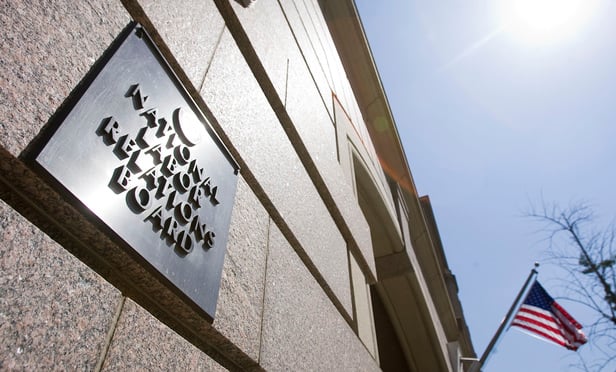 National Labor Relations Board
National Labor Relations Board
Photo by Diego M. Radzinschi
An unusual confluence of petitions from employers, employees and the government successfully urged the U.S. Supreme Court to decide whether workplace arbitration agreements that ban class actions violate federal labor laws.
The justices agreed on Friday to take up the dispute. The three petitions shift the controversy over class action bans away from consumer arbitration agreements and into the arena of employment agreements.
The U.S. Chamber of Commerce, the National Association of Manufacturers and other pro-business and pro-employer organizations filed amicus briefs asking the high court to take on the issue and to find that class action waivers are enforceable.
“It really is about class action waivers in employment contracts generally,” said Scott Nelson of Public Citizen Litigation Group, which is backing the National Labor Relations Board as an amicus. “That is pretty far reaching. The two principle places where these bans occur are in consumer and employment agreements. The decision has the potential to sort of make those agreements inoperative in half of the field in which they’ve been used.”
The three petitions granted are: NLRB v. Murphy Oil USA (Hogan Lovells’ Neal Katyal represents the company); Epic Systems v. Lewis (Katyal for Epic Systems; David Zoeller of Hawks Quindel in Madison, Wisconsin, for Jacob Lewis); Ernst & Young v. Morris (Williams & Connolly’s Kannon Shanmugam for Ernst & Young; Max Folkenflik of New York’s Folkenflik & McGerity for Morris). A fourth petition, likely being held for decision in the three granted, is Patterson v. Raymours Furniture.
The petitions reflect a conflict in the circuits. In Murphy Oil and Patterson, the Fifth and Second circuits, respectively, found no National Labor Relations Act violation. In Epic and Ernst & Young, the Seventh and Ninth circuits, respectively, struck the class action bans and said the arbitration agreements were unenforceable.
Besides a “pretty direct conflict,” Nelson noted the “somewhat extraordinary posture” of separate petitions in which the government, two employers and an employee asked the justices to hear the issue.
The National Labor Relations Act was enacted in 1935 to protect the rights of employees and employers, to encourage collective bargaining and to curtail certain harmful private sector labor and management practices. The act applies to most private-sector employers, including manufacturers, retailers, private universities and health care facilities. The act does not apply to federal, state or local governments.
In 2012, the National Labor Relations Board, in D.R. Horton, first ruled that agreements requiring employees to use individual arbitration for all work-related disputes interfered with employees’ right to engage in concerted activities under the labor relations act. The board said that when such an agreement violates the labor relations act, the Federal Arbitration Act does not require its enforcement.
The U.S. Court of Appeals for the Fifth Circuit, ruling in D.R. Horton v. NLRB, rejected the board’s analysis and held that the National Labor Relations Act does not override the Federal Arbitration Act. The use of class action procedures is not a substantive right under the labor act, the court said.
The NLRB did not retreat. In 2014, in the case now at the Supreme Court—Murphy Oil—the board reaffirmed its ruling. The Fifth Circuit, again, rejected the NLRB analysis.
“There are a lot of obvious uncertainties here,” said Nelson of Public Citizen. “The board’s petition comes right before a change in administrations. The petition is authored by the solicitor general’s office, which is going to have new leadership as well. It’s a very complicated situation and things may look a little different now than when those petitions were filed.”
Originally published on The National Law Journal. All rights reserved. This material may not be published, broadcast, rewritten, or redistributed.




